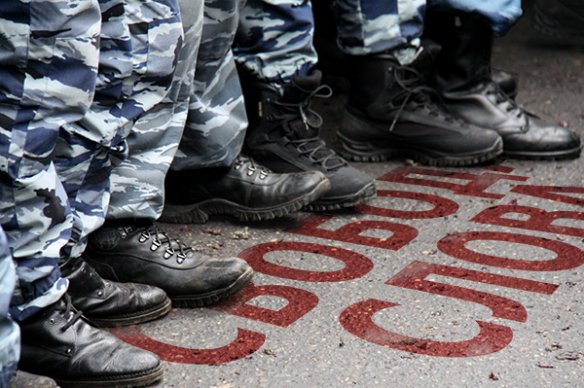
Your right to know is cancelled.
These attempts at curtailing the flow of information and persecuting the disseminators of politically undesirable news (including bloggers) might appear old-fashioned and inspired by Soviet-era KGB practices, which are held dear by Putin and his henchmen. They are, nevertheless, more effective than the spread of Internet-based social networks would suggest—and not only due to the impact of their vicious propaganda but also because the mass production of “patriotic” illusions has left many people disoriented and averse to facts and figures that puncture these illusions and leave them with feelings of foreboding disaster. The Kremlin exploits this disorientation and presents its curtailing of Russians’ access to public information as a response to social “demand.” But in orchestrating the stigmatization of dissidents, who persist in digging up the truth about Russia’s decay and corruption, the Kremlin becomes a consumer of its own propaganda. Living the lie of Putinism, Russia may appear strong and determined to defy the allegedly hostile West, but the falsity of this unity is revealed by the population’s indifferent acceptance of the supreme decision to deny honor to the country’s fallen soldiers.
The full text of the article is in Eurasia Daily Monitor, June 1.